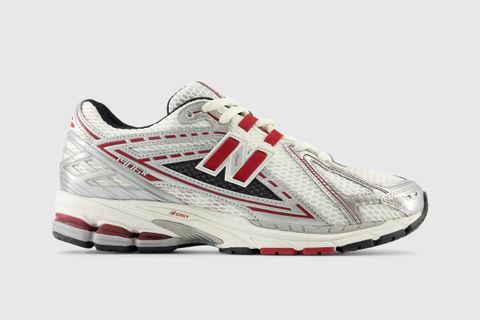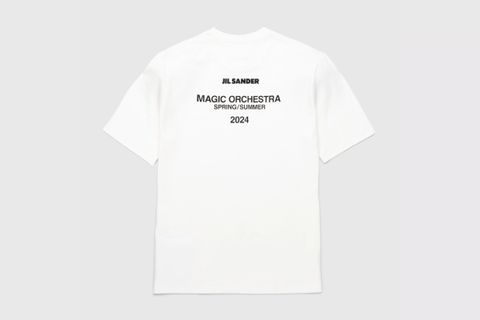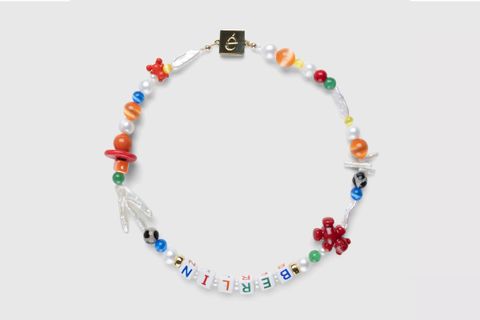The Irony of FKA twigs' Banned Calvin Klein Ad
Calvin Klein’s first ad campaign of 2024, juiced up enough borderline nude images of actor Jeremy Allen White to fill a pin-up calendar, was met with fawning praise. Inexplicably, a nearly year-old and comparatively SFW Calvin Klein campaign starring singer FKA twigs was simultaneously and suddenly banned.
Though the FKA twigs CK photo (singular – just one photo) hardly reveals any more skin than a bikini would, the UK’s Advertising Standards Authority (ADA) purportedly received two complaints from people calling it offensive. After review, the ADA’s own ruling deemed that it “centered on FKA Twig’s physical features rather than the clothing,” and thus was “likely to cause serious offense.”
Offense to whom, you may ask? Great question because FKA twigs’ CK campaign, published way back in March 2023, has long since been replaced with new ads.
Though one could call the photos of Kendall Jenner, who co-starred in the CK campaign with FKA twigs, equally provocative, they are apparently “no more than mildly sexual,” according to the ADA, which reviewed both Jenner and twigs' photos simultaneously. However, twigs’ picture was determined to have “presented her as a stereotypical sexual object.”
And so, on January 10, the ADA ruled that CK’s FKA twigs ad “must not appear again in the form complained of.” Which wasn’t going to happen anyways, you know, because it’s a year-old campaign that had already been taken down many months ago.
What’s wrong with this picture — literally?
CK hasn’t commented beyond a statement that it gave to the ADA stating that FKA twigs had collaborated on the image's creation and gave it her blessing before publication. Thus, the ADA's ruling implies that, somehow, FKA twigs objectified herself.
Indeed, the campaign images remain on CK’s global Instagram page, where they’ve been since March 15, 2023.
FKA twigs, who uses she/they pronouns, concurred in her own IG post. “I do not see the ‘stereotypical sexual object’ that they have labeled me. … I will not have my narrative changed,” she wrote.
“In light of reviewing other campaigns past and current of this nature, I can’t help but feel there are some double standards here.”
On the latter point, it’s hard to disagree.
Calvin Klein is nowadays a better steward of inclusivity but prior to the year 2000, it purposely pushed buttons with brazen ads that, respectfully, used to fall on the wrong side of righteousness.
First, there was the 1980 jeans campaign featuring then-14-year-old Brooke Shields, who wore jeans, a loosely unbuttoned shirt, and nothing underneath. Mark Wahlberg and Kate Moss posed bare-chested for CK Obsession in ‘92; some UK ads solely presented a topless 17-year-old Moss.
Three years later, Madonna’s Sex photographer, Steven Meisel, devised a Calvin Klein ad wherein young-looking models writhed on a carpeted floor, the camera traveling ever lower to lens them from beneath.
Though these ads didn’t all land in their day — the Shields and Meisel campaigns were pulled in some areas of the US, and Moss later explained how uncomfortable she was when shooting her CK ads — they reflect an attitude that’s clearly still informing today’s CK ads: bare skin sells.
And “Effortless sensuality,” as the CK Instagram bio reads, demands saucy, boundary-pushing, and mostly unclothed models. Though they do feature consenting adults and, on occasion, varying body types, the CK Guy and Gal typically remain very much ripped.
Such was the case with the Jeremy Allen White campaign, published in January 2024. Nearly every inch of White’s body was on full display, and why not? He looked great. Same for Jenner, who stripped down to underwear and socks for her (mostly-covered and still-unbanned) ad. Same for FKA twigs, whose CK photo looks practically prudish compared to any of White’s.
This is the kind of self-aware objectification that defines today’s Calvin ads. Unlike the days when a too-young ingénue submitted to the male gaze of the advertising industry, today’s CK ads are formulated with compliance from both the subject and their team. Fact of the matter is they're designed to empower, rather than objectify, the subject.
So, it becomes all the more ironic that a photo of FKA twigs, created with approval and insight from the singer herself, would be banned by a third-party company citing… objectification. Does this not smack of society telling women that it knows what’s best for their bodies? In the wake of recent culture-shaping events like America’s widespread abortion bans and social media companies being pushed to lift breast bans, it’s hard to read this situation otherwise.
Regardless, the apparent knee-jerk response leaves more questions than it answers: Why were these ads banned nearly a year after they were published? Why were photos of a woman of color banned but pictures of white men and women left in place? What would the people who complained about FKA twigs’ so-called objectification think of Jeremy Allen White’s ass towering over Houston Street?
And, really, will the world ever police anything as fiercely as it does women’s bodies?


